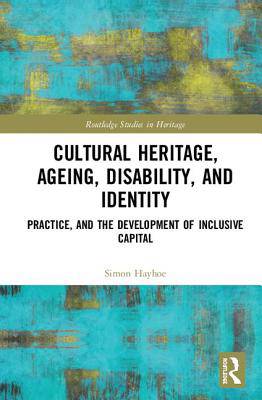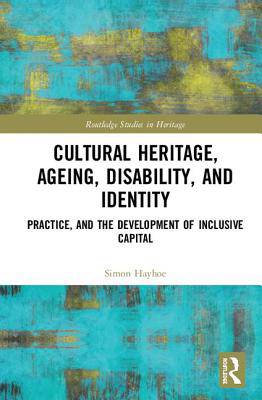
- Afhalen na 1 uur in een winkel met voorraad
- Gratis thuislevering in België vanaf € 30
- Ruim aanbod met 7 miljoen producten
- Afhalen na 1 uur in een winkel met voorraad
- Gratis thuislevering in België vanaf € 30
- Ruim aanbod met 7 miljoen producten
Cultural Heritage, Ageing, Disability, and Identity
Practice, and the Development of Inclusive Capital
Simon HayhoeOmschrijving
Cultural Heritage, Ageing, Disability, and Identity examines the effects of disability and ageing on engagement with cultural heritage and associated cultural identity formation processes. Combining theory with detailed case study research, it unpicks both the current state of play and future directions.
The book is based upon detailed case example research on both the self-reported individual experiences of people with disabilities engaging with cultural heritage, and the accessibility approaches of cultural heritage institutions themselves. Hayhoe grounds the analysis in a theoretical and historical overview of disability and inclusion. He interrogates the various ways in which identity is formed through interaction with cultural heritage, and considers the differences in engagement with cultural heritage amongst those who develop disabilities early in life compared to those who acquire disabilities later in life. His conclusions offer insights that can help improve the provision of cultural heritage engagement to all people, but particularly those with disabilities.
Cultural Heritage, Ageing, Disability, and Identity is key reading for students and scholars of cultural heritage, visitor studies, and disability studies, and will also be of interest to other subject areas engaging with issues of accessibility. It should also be read by institutions looking to improve their accessibility strategy to engage broader audiences.
Specificaties
Betrokkenen
- Auteur(s):
- Uitgeverij:
Inhoud
- Aantal bladzijden:
- 202
- Taal:
- Engels
- Reeks:
Eigenschappen
- Productcode (EAN):
- 9781138555372
- Verschijningsdatum:
- 2/05/2019
- Uitvoering:
- Hardcover
- Formaat:
- Genaaid
- Afmetingen:
- 156 mm x 234 mm
- Gewicht:
- 476 g

Alleen bij Standaard Boekhandel
Beoordelingen
We publiceren alleen reviews die voldoen aan de voorwaarden voor reviews. Bekijk onze voorwaarden voor reviews.











